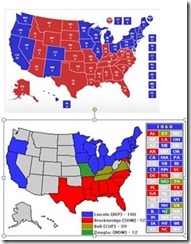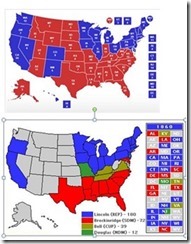In case you missed it, I was interviewed by Paul Fenn and Charles Schultz on the KWMR morning show in a segment devoted to the way the election looks from the vantage point of the local power movement – a movement that Paul Fenn founded a little more than twelve years ago. I first met Paul while both of us were studying at the University of Chicago. We have stayed in touch over the years, provoking, cajoling, and encouraging one another in our sustained, overlapping project to pry open the realm of freedom, Paul through the local power movement, I through my teaching and writing.
As soon as the KWMR segment is archived, I’ll publish a link. In the meantime, I will continue to search for as many ways as I can think of to nudge our way of doing politics and economics in the U.S. away from what might be called a transcendental, supra-historical vantage-point, toward an immanent, historically embedded approach. The transcendental, supra-historical vantage-point is what Aristotle twenty-four centuries ago correctly called “perverse.” It is perverse because it takes what everyone readily agrees is a contained, finite, delimited cosmos and behaves as though it can be subjected to an infinite regression of production and consumption. And it behaves as though this finite cosmos is infinite because it has confused abstract, mathematical value with the kind of value that all peoples, everywhere, throughout all times have found and shared through their common lives together.
One way to nudge our way of doing politics and economics toward immanent, historically embedded ways of thinking and doing is to highlight how and why the republican ideal embraced by the framers of the U.S. Constitution is very nearly the exact opposite of the ideal embraced by the leaders of today’s Republican Party. This is more than a mere debate over words. When the framers guaranteed a republican form of government to each and all of the United States, they meant quite literally that we, collectively, would protect the wealth we hold in common from depredations and seizures launched by private wealth (oikonomia) upon public wealth (politeia). The leadership of today’s Republican Party, by contrast, have become champions precisely of private wealth’s depredation and seizure of public wealth on behalf of private self-interest.
But lest we get too cocky, this plundering of public wealth by no means bears a uniquely Republican signature. For well over half our nation’s history, from 1791 to 1932, it was the Democratic Party, not the Republican, that championed the anti-federalist and anti-republican cause. I have published the map below several times on these pages to illustrate this very point. All of the red on the bottom map, the map from 1860? Well, that was as solidly Democratic in 1860 as it is solidly Republican in 2012 (the top map).
More ominously, for each map, it was the wealthiest members of society who brought its poorest citizens to vote against their political as well as against their economic self-interests. In the Democratic, pre-voting rights south, wealthy land owners convinced their poor, white countrymen that a politically and economically emancipated south meant a south ruled from Washington, DC.
They were right. A politically and economically emancipated south would be ruled, not from Washington, DC, but from a republican and federalist government, the kind of government enshrined in the U.S. Constitution, where the wealth we hold in common preempts private wealth. And the wealthiest southerners knew this and used this knowledge to turn their countrymen against the Constitution. And, yes. The Civil War was a movement to overturn the Constitution.
In the post-voting rights United States – roughly 1965 to the present – once again the wealthiest Americans have spent huge sums of their own resources convincing their poorest fellow countrymen that a politically and economically emancipated United States would mean that federal law would preempt local custom and tradition.
And, once again, they are right. A politically and economically emancipated United States would protect the wealth we hold in common from depredations and seizures by purely local, private enterprise – what the classical Greeks termed oikonomia, but what we call economy. When Republicans place private enterprise over public wealth, they are in fact unfurling one of the oldest anti-republican and anti-federalist banners. They will pit the household, the private oikos, or economy, against the commonwealth, the politeia, the Republic. They will set what we do not and cannot share over against what we do and must share together.
But, in fact, there is no conflict here. Because the only way our households, our oikos, and economy can collectively prosper and flourish is when we share our wealth to create a shared world, a shared legal and a shared economic and political system in which alone the preamble to the Constitution makes any sense at all:
We the People of the United States, in Order to form a more perfect Union, establish Justice, insure domestic Tranquility, provide for the common defence, promote the general Welfare, and secure the Blessings of Liberty to ourselves and our Posterity, do ordain and establish this Constitution for the United States of America.
It was against this notion of “common defence” and “general Welfare” that the anti-federalists and anti-republicans most loudly railed in 1787; and against these that they continue to rail today.
Today’s Republicans do not simply hold an alternative view of the same Constitution. They are opposed to our Constitution. They are opposed to the Republic. They were opposed to it in 1787, when they were called the anti-Federalists. They were opposed to it in 1820 when they were called Democrats. They were opposed to it in 1860, when they were called Confederates. And they are opposed to it today when they call themselves Republicans.
I wrote my book, Commonwealth, so that those of us who believe in the Republic, who believe in the wealth we hold in common, might have a clear narrative of U.S. political history around which to organize their message of liberty.
Tomorrow, November 6, there are a whole range of propositions and candidates that will test our desire to share our private wealth with one another in a Republic. If we still believe in republican self-government, we will vote for these candidates and propositions.
SUPPORT OBAMA! VOTE FOR PROP. 30!
VOTE AGAINST PROP. 32!


